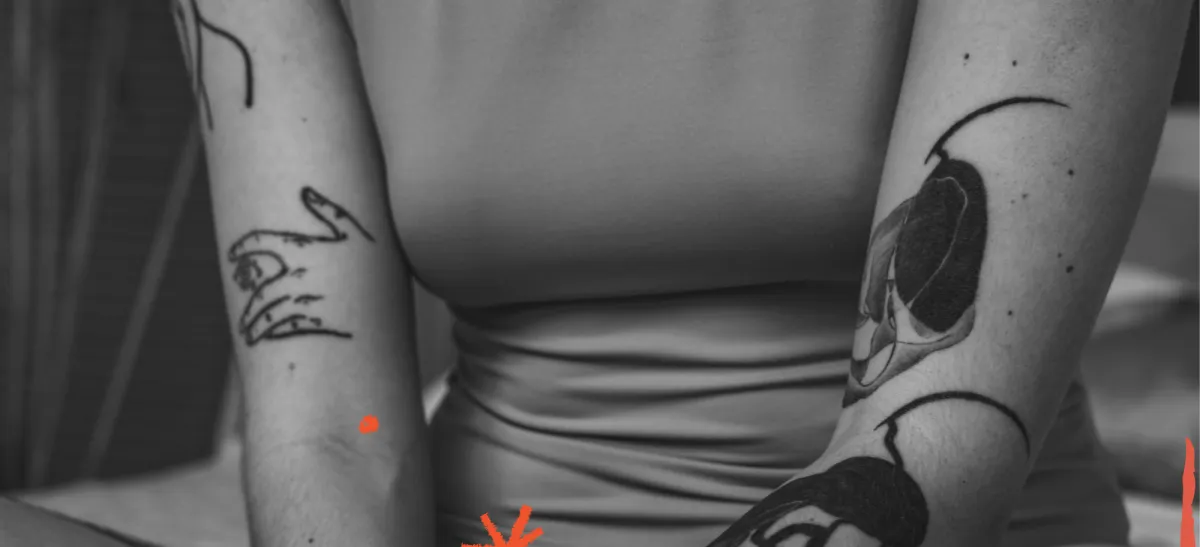About Letting Go of Unrealistic Beauty Standards and Learning to Love My Labia and Body Hair
It took me years to break away from heteronormative norms and truly appreciate nature’s gift.

Access the Audio Read version of this article directly on Spotify for Podcasters.
A few months ago, on my way home from a great evening with friends in East London, I stopped in front of a small gallery showcasing the work of Lydia Reeves, a female body-casting artist. The exhibition, entitled ‘My Vulva and I’, revolved around the representation of labia, in all its shapes and forms, and most of all, a celebration of vulva diversity. As I walked in, my eyes landed on dozens of labia casts, from all around the world. My mind was blown away instantly, and it wasn’t even the highlight of the exhibition. As you walked into the gallery, you were referred towards a Spotify page where the artist had uploaded the stories of all the anonymous people behind the casts – some lighthearted, some heavy. Stories of sexual assault, body confidence, shame, and more. It was, for me, the perfect ingredient to make this exhibition memorable.
Until my early thirties, I never really thought about the aesthetics of my labia. I did watch my share of porn over the years, took a few peeks at my vagina when I was younger after chatting with my girlfriends, and was inspired when Sex and the City’s Charlotte tentatively checked out hers in the mirror. But I also had the privilege of not giving it much thought, perhaps from my religious upbringing, my self-confidence, or the fact that it wasn’t a topic amongst my entourage at that time. I never questioned my labia’s size, its colour, or its shape, and never wondered if it was all ‘consistent’ with what I’d seen online. What I had always been self-conscious of though, was my body hair, and more specifically, my pubic hair. I’m sure I’m not the only one who tortured themselves with grooming politics.
Like many other straight cis-gendered women, I got sexually active and was exposed to the male gaze on my body in my late teens. While I believed I had no major issues with my body acceptance at the time, body hair was always a question mark, and I rapidly endeavoured to get rid of it. And to fulfil that mission, I tried it all. It took me years to realise my body hair wasn’t the problem, and that I was simply conditioned to society’s war against it. And that’s when I started to let go.
I’m not going to lie, I’m still trying to eradicate my body hair today, but I have developed a healthier relationship with it. While the mere sight of hair used to make me pull the razor out, I now surprise myself at not caring so much and set it free, to some extent. But hard habits and years of brainwashing die hard. I spent years trying to groom my bikini line, only to find out later on that my labia hair was there to protect me, and that nature’s work was wonderful.
As I grow older and learn more about my body and all its powers, I keep wondering what would happen if we were to free ourselves from society’s say on what the female body should look like. Would we be more carefree? Would we still spend thousands on all sorts of hair removal treatments designed to meet unattainable beauty standards?
And as I educate myself more on heteronormative assumptions and the overall representation of our bodies in the media, I have found wonderful artists and activists talking about this issue online – such as Alok Vaid-Venom, author of ‘Beyond the Gender Binary’. Aside from their work on re-establishing the truth around gender normativity, they have spoken in length about their relationship with body hair and how liberating it has been to keep it. In a review of Rebecca M. Herzig’s book ‘Plucked: A History of Hair Removal’, they expressed that “we must end with the idea that femininity equals hairlessness and the societal expectation of women’s hairlessness.”
As Vaid-Venom said rightly, “body hair has no gender. People should have the choice to maintain or remove their body hair and this shouldn’t influence how they are treated”. And as for me, I would love to live in a world where people feel good in their own skin – hairy or not.





